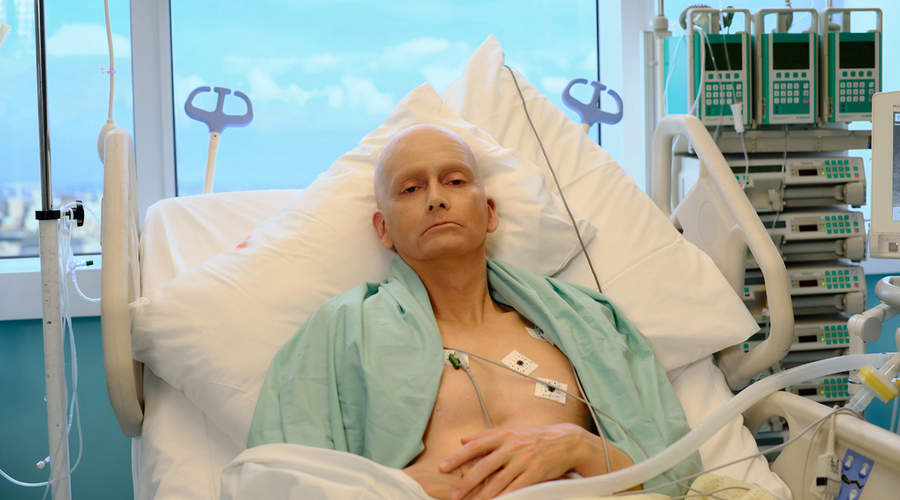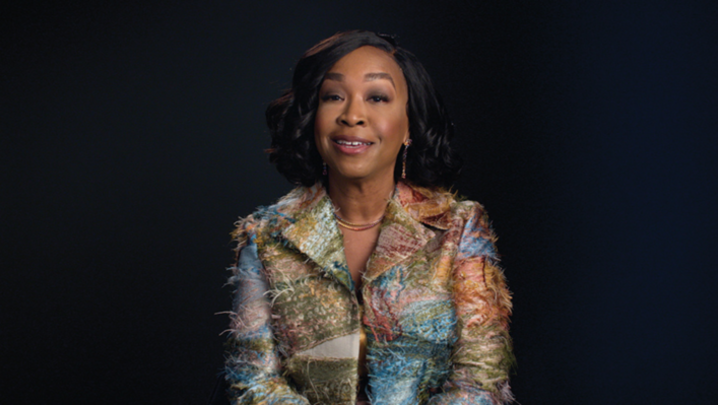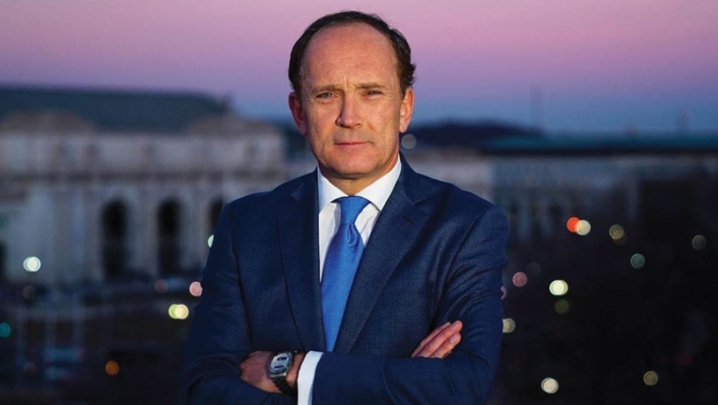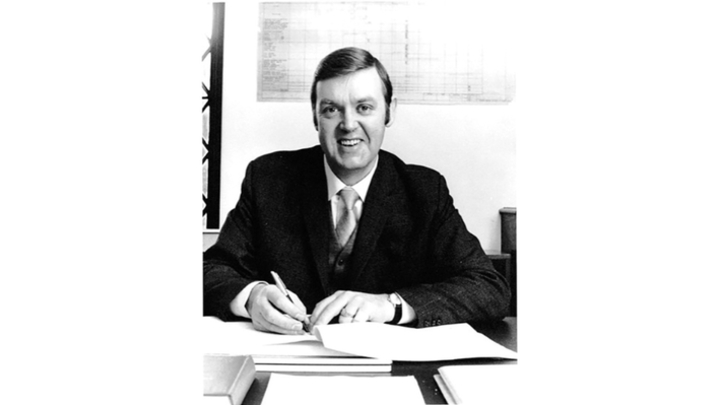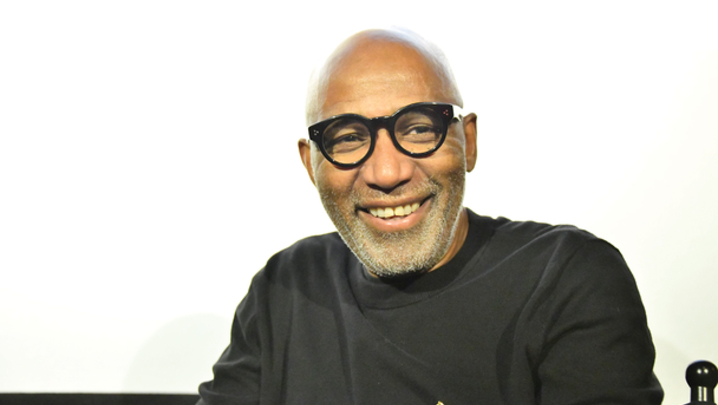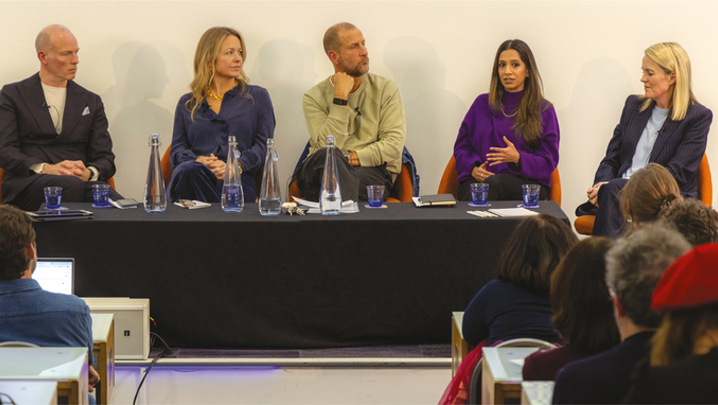‘I’d like to report a murder,” says Alexander “Sasha” Litvinenko, played by David Tennant, in ITV drama series Litvinenko. Detective Inspector Brent Hyatt (Neil Maskell) asks whose murder.
“Mine,” he replies. And so begins the dramatisation of one of the most politically charged murder investigations in Metropolitan Police history.
Litvinenko, a former Russian Federal Security Service and KGB officer, was poisoned with Polonium-210 in London in 2006. Knowing that he would die, he was able to deliver the details of who was behind his murder to the police. But it took more than a decade for his claims to be confirmed.
The four-part series is produced by ITV Studios, Tiger Aspect Productions and Nordic Entertainment Group (Nent Group) in association with Livedrop Media and will premiere on the new streaming service ITVX on 15 December.
It focuses on the search for justice of his grieving widow, Marina Litvinenko, and the efforts of the Met to uncover the truth behind his assassination. It also casts a light on the UK’s unwillingness to implicate the Russian government in the murder because of repercussions this could have on the world stage.
This high drama was ripe for the screen from the get-go. At an RTS screening and Q&A in London, which also featured co-producer Richard Kerbaj and director Jim Field Smith on the panel, Marina Litvinenko explained that the story had been picked up by Hollywood early on. “I believed it would be very important to do, to make it as a memory; it would be kind of justice for me. But it didn’t happen, and I can’t say I was disappointed,” she said.
When Kerbaj, who produced Channel 4’s 2017 documentary on Litvinenko’s murder, Hunting the KGB Killers, approached her to turn her story into a drama, she kept her expectations low. But this time, with the support of ITV, it came to fruition.
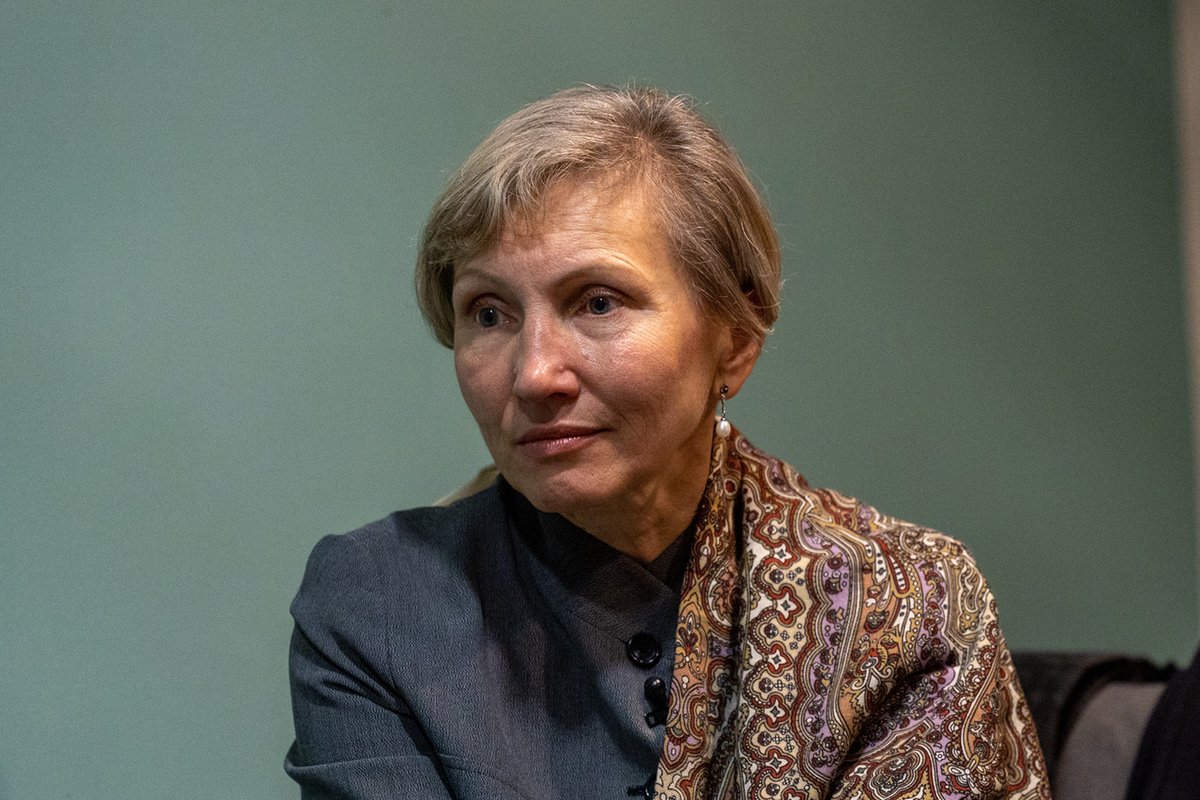
Field Smith said: “Drama commissioning and film-making can sometimes feel a little glacial, but ITV has been behind this project from the start and has supported it wholeheartedly. It’s not an easy story to tell and, despite being a very well-known story, it’s a hard one to get right.
“It was originally commissioned as a three-part series, and then George [Kay, the screenwriter] was very keen to tell a fourth part, which is the fourth episode that follows Marina as she continues to push for an inquiry. ITV supported that and it supported us through what ended up being three pushes because of Covid. It was not hard to get commissioned, but quite hard to get made.”
“When it was finally safe to start, I realised it would be very good to remind people what happened 16 years ago,” said Marina. “Our son, Anatoly, was 12 when his dad died in front of him. This was another way just to show to him who his father was, and not just forget and say, ‘it’s the past’.”
Indeed, she added, today, “with what is happening in Ukraine, we have no other words for Putin [than that he is] a terrorist and murderer”.
Kerbaj agreed that the messages teased out in the series have direct relevance to today’s global landscape. “There are so many correlations between the way that the Kremlin shows a complete disregard for international law [and] the geopolitics of it all,” he said.
“When Putin came to power in the late 1990s, he gave the impression that he was a friend of the West; he even gave the impression that, if Russia was invited to join Nato, it might do so. He was very much brought into the fold [after the collapse] of the Soviet Union.
“The reason why the Litvinenko case is so crucial to the relationship between the West and Moscow is that it became a turning point in the way that Western countries viewed their understanding of Moscow – they realised that it was not a friend and it needed to be watched… and that’s still the case. That was a turning point, geopolitically, in the way that the intelligence services in the West and, in particular, the UK, viewed the Kremlin.”
Is the Kremlin aware of the series? Field Smith answered: “Certainly, Andrei Lugovoy [the suspect in the murder investigation, and a high-profile Russian politician] made a statement about it when we announced the show. This is a man who is not shy of publicity. I’m glad they have an awareness of the show, that’s one of the whole points that I was making here. The show is truthful and honourable, and, I think, as much as it can be, it is unbiased.”
The contribution of those involved in what happened to the Litvinenkos helped to bolster the accuracy of the drama. In addition to Marina’s input (she is played by Margarita Levieva), the police inspectors Clive Timmons (played by Mark Bonnar), Hyatt and KC Ben Emmerson helped bring the story to life. “It was fascinating seeing the actors interacting with the contributors,” said Kerbaj.
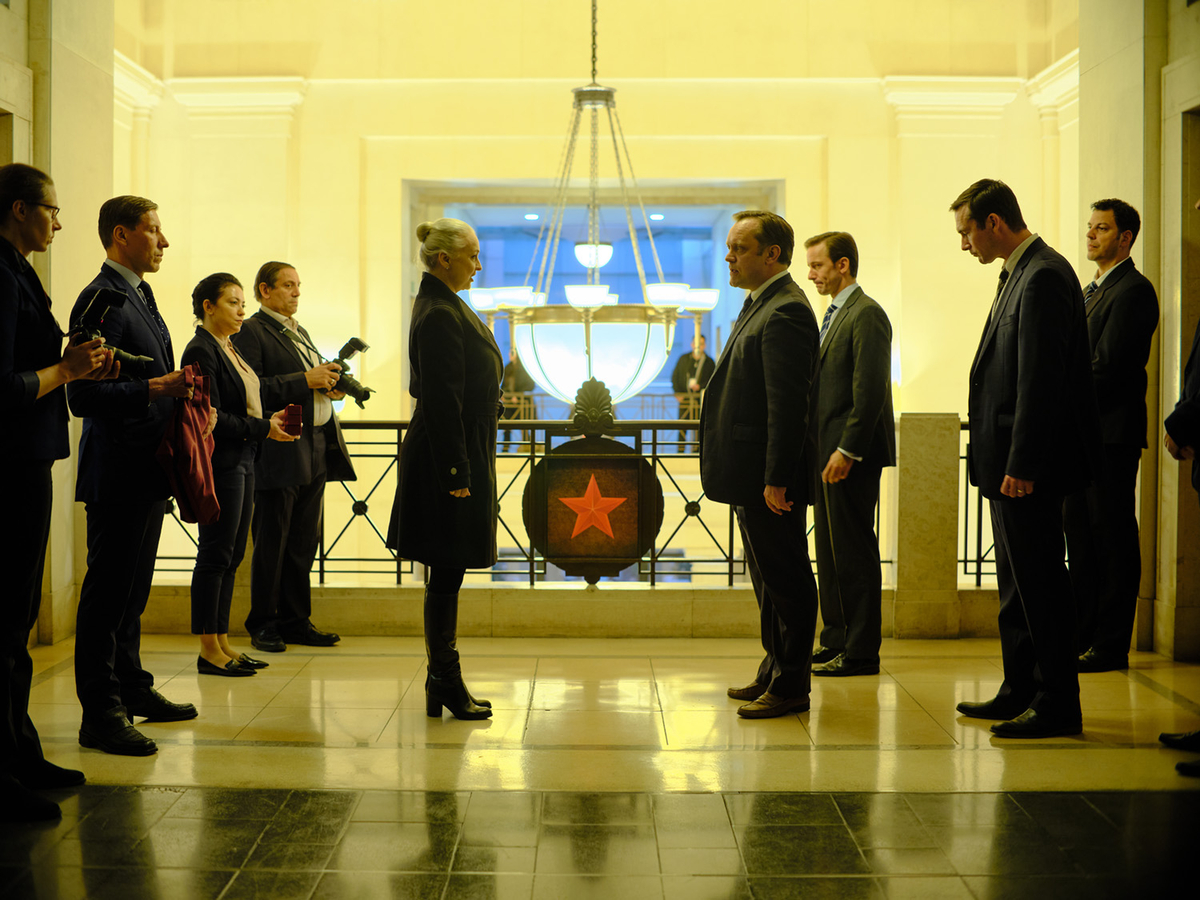
To add to the story’s authenticity, many of the film’s locations were the places where the real events unfolded. “Without being obsessed with it, we tried to be fastidious about how we recreated those places. That was really important to us because, once you’ve nailed down those details, you can allow the story to take place around it,” said Field Smith.
“We shot throughout central London in the height of the pandemic. We went to the Royal Courts of Justice. You won’t be surprised to hear we didn’t go to Moscow. We filmed Moscow in and around east London,” he said, to titters from the crowd. “Our [art] department did an incredible job at recreating Moscow within the UK.”
While the tactics of the Russian government are now well-known, the series will still be viewed as controversial because it doesn’t shy away from showing the UK’s part in appeasing Moscow.
Said Smith Field: “As proud as the Metropolitan Police did the Litvinenko family… I don’t think the UK government comes across particularly well in the show. And, as much as the Russian state is responsible for so much of the atrocities that you see in the show and we’ve seen since, the UK state has a huge case to answer for how, over the years, it appeased that regime.”
“That’s something you and George [Kay] really wanted to bring out and it does come through in the episodes,” added Kerbaj. “It’s a very important point.”
With all eyes back on Alexander’s assassination with this high-profile drama, the final audience question of the evening was about what Marina would consider the end of her quest.
“I think everything might be finished for me when, one day, I will be free to go to Russia and to feel safe and feel the country is back to a normal, civilised world,” she said, adding that she was well aware of the consequences when she took on this battle for justice.
“Sometimes I think, was it right or was it not right? But at the end, I see it as not only my story. When people approach me and say, thank you very much for what you’re doing, I say ‘OK, I can do it’. And sometimes, if you can feel you can do it, you have to.”
Report by Shilpa Ganatra. The RTS London event, ‘Litvinenko screening and Q&A’, was held on 22 November at the British Museum. It was chaired by Boyd Hilton and produced by ITV’s Natasha Bayford.

